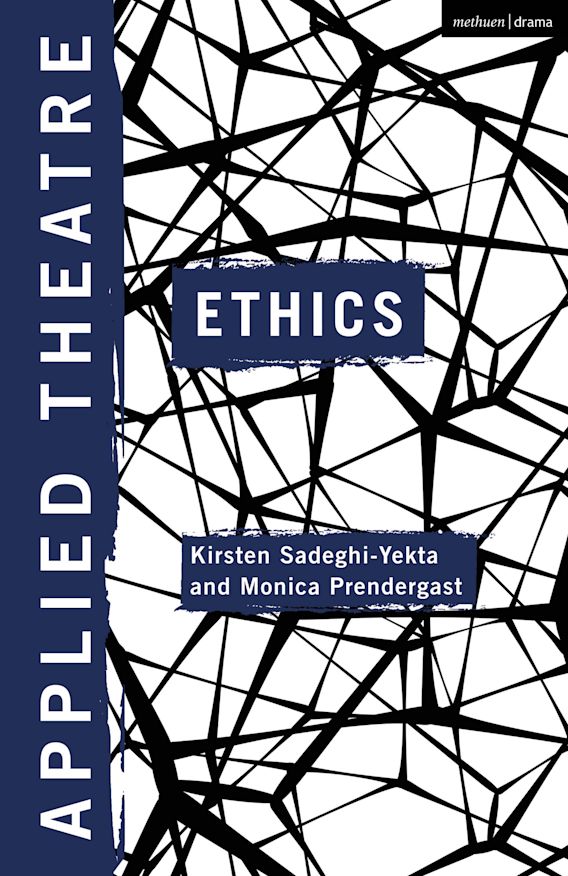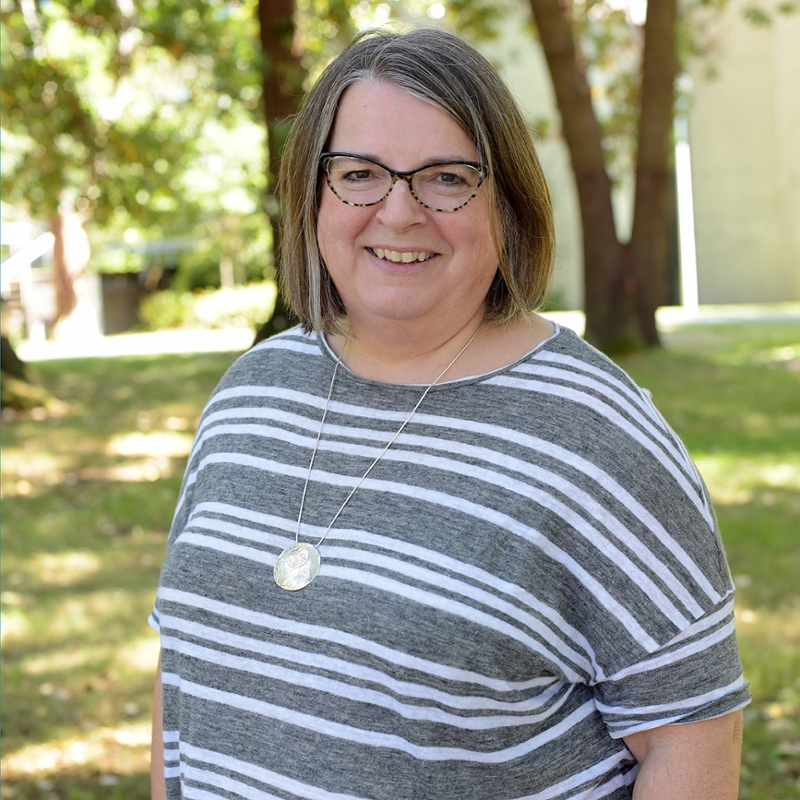New book delves into ethics in Applied Theatre practice
Taylor Williams
The Phoenix Theatre’s display case of faculty-written books is about to gain an impressive addition: Applied Theatre: Ethics, written by Associate Professor of Applied Theatre Dr. Kirsten Sadeghi-Yekta in conjunction with Dr. Monica Prendergast, Professor of Drama/Theatre Education.
Generally speaking, applied theatre is the use of theatre and drama skills for the purposes of teaching, bringing about social change and building a sense of community. Specifically, Applied Theatre: Ethics, explores what it means for applied theatre practice to be conducted in an ethical way. The text also considers how practitioners can balance aesthetics and ethics when creating performance, particularly with vulnerable groups of people who are being asked to both tell and stage their stories.
Dr. Prendergast’s research interests include drama-based curriculum and pedagogy, drama/theatre in community contexts, and arts-based qualitative research methods. Previous publications include Applied Theatre and Applied Drama (both with Juliana Saxton); Teaching Spectatorship; Poetic Inquiry; Staging the Not-yet; and Drama, Theatre and Performance Education in Canada. Prendergast also reviews theatre for CBC Radio Canada and writes a column on theatre for Focus Magazine.
Dr. Sadeghi-Yekta’s research interests include theatre in war and (post)-conflict zones, theatre in developing settings, Indigenous theatre, and more specifically the meaning of language revitalization, social justice, and human rights within the field of applied theatre. She has published articles and chapters on these topics in numerous publications, including Research in Drama Education.
When asked how the themes and ideas of Applied Theatre: Ethics are relevant to today’s theatre climate, Dr. Sadeghi-Yekta responded, “[Monica Prendergast and I] found three threads we argue are pivotal for any theatrical practice: presence, care and service. In order to work in a community or on any theatre production, one needs to be present. Presence in a very broad sense: one should be aware of who they are to the people in the room (positionality, relationship, power dynamics) and where they are positioned to the work they are undertaking.”
“We also need to take care of the people we collaborate with, care for the artistry, and care for ourselves (we seem to forget about this a lot!). And lastly, in applied theatre we are also part of a service undertaking, awareness of our intentionality, responsibility and most importantly the needs and wants of the community we are working with.”
Applied Theatre: Ethics features perspectives from Indigenous communities, offering recommendations for community-based ethical approaches through principles of voice, agency, care, service, collaboration, presence, relationality and reciprocity.
When asked how these principles apply to her work with Indigenous communities, Dr. Sadeghi-Yekta said, “These threads have been and are pivotal in my collaboration with the Hul’q’umi’num’ Culture and Language Society over the past 7 years. Working on Indigenous languages and culture asks for a clear self-location and awareness of the privileged position I am finding myself in every day,” she continued, “Using drama for language reawakening is a complex task, but so far we have been successful by building relationships with the community through transparency, respect, and taking care of each other’s heart and worldview.”
Applied Theatre: Ethics is scheduled for release on February 24, 2022.
Everyone is welcome to attend the book launch at the Department of Theatre to celebrate the book on
Thursday, March 17, 12:45pm in the Roger Bishop Theatre.


Dr. Kirsten Sadeghi-Yekta,
Associate Professor of Applied Theatre,
Department of Theatre

Dr. Monica Prendergast,
Professor of Drama/Theatre Education,
Department of Curriculum and Instruction
